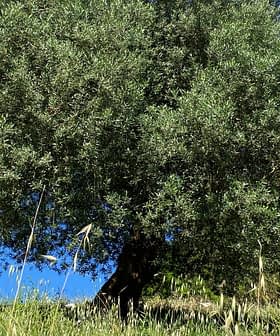The arrival of this season’s freshly pressed extra virgin olive oils and the latest scandals are food for thought on the newest PDOs (Protected Designations of Origin) and PGIs (Protected Geographical Indications) in Italy. In Basilicata, producers gathered to sell their PDO oil with a common label while Sicily struggles to get its regional PGI recognized by the EU.
Despite the difficulties and the less-than-satisfying results of protected certifications thus far, Italian growers and producers still consider them a good way to protect and safeguard their products.
In Vùlture — a small area in the northern part of the Basilicata region located under the eponymous mountain and including the municipalities of Melfi, Rapolla, Barile, Rionero in Vùlture, Atella, Ripacandida, Maschito, Ginestra and Venosa — the local extra virgin olive oil producers decided to create a common label to commercialize their PDO products.
Basilicata is famous for its olives, but the local oil is not yet fully appreciated and the territory is quite detached from the main flow of tourism, despite its rich history and breathtaking natural beauty.
While the local Vùlture PDO has been approved since 2012, due to the small dimensions of the local farms, the certification has never received much attention.
Now, the 16 producers and owners of certified groves in the Vùlture area, led by Giuseppe Masturzo, have given birth to a new company called Società Frantoiani del Vùlture (Vùlture Oil Millers Cooperative).
The single estates will keep producing and bottling their own extra virgin olive oil, but they will confer the PDO-certified oil to the new company, which will bottle, label and commercialize it with a brand new layout, elegant packaging and a unique name: Olio Vù.
“This was a business deal,” said Antonietta Rucco, the company’s Promotion and Communication Manager, “but we are firmly convinced of the ‘United we stand, divided we fall’ motto. The Vùlture PDO’s production regulation is the strictest in Italy for extra virgin olive oil and we have an outstanding quality, but we need to join our efforts the let our product to be known and appreciated. Local farms are very small and even by bottling all their PDO oil, we won’t exceed 200,00 bottles per year.”
The main local variety, Ogliarola del Vùlture, must comprise 60 percent of Vùlture PDO, while the remaining 40 percent can include other cultivars such as Coratina, Cima di Melfi, Palmarola, Provenzale, Leccino, Frantoio, Cannellino, Rotondella, Nocellara and Ladolia. The acidity cannot exceed 0.38 percent (oleic acid).
Thanks to the mineral composition of the soil in the area — the Vùlture once was a volcano — and to the local microclimate, here olive trees grow healthy and rich and the local olives give a smooth, mildly pungent and medium fruity extra virgin with a golden color and greenish hues.
While the new Olio Vù was launched in Milan during Expo 2015, we still have to wait to taste the new harvest’s output. Local growers are still harvesting — early harvest is not that common here — and it will take some more time to receive the PDO label due to the certification procedures. The new Olio Vù will only be available at the beginning of 2016.
Going more South, things are getting harder. In Sicily, over the last two years the local committee led by Maurizio Lunetta — also president of the Sicilia wine designation of origin’s consortium — has been putting all its effort to obtain a regional PGI for extra virgin olive oil, and to reach an agreement and a common plan among all the island’s producers.
Despite counting on 6 different PDOs and an acknowledged average quality, Sicilian olive oil still does not get a fair price on the national and international loose extra virgin market and the single geographic denominations do not have an immediate link to the region’s name, even for Italian people.
“Val di Mazara PDO embraces a territory between Palermo and Agrigento, but most of people only associates it with the harbor city of Mazara del Vallo, on the southern coast,” Lunetta explained.
“On the contrary, Sicily is very well known and appreciated all over the world. The regional PDOs represent our diamond point and are doing well, but they are too small compared to the whole Sicilian olive grove. We want to make the most of this wide acknowledgement.”
Unfortunately, after having been approved by Italian Ministry, the designation has been suspended by the EU despite making requested adjustments to the regulation.
“They are currently raising doubts on the legitimacy of all the regional designations,” Lunetta explained, “but we have our Ministry’s support and we are confident. It would be a real shame to nullify all the efforts we made to persuade the whole olive oil chain on the island — growers, small producers and big bottlers — to sit at the same table for the very first time.
“We have over 500 olive mills, a myriad of small farms in Sicily, and many different varieties. But the greatest part of the Sicilian extra virgin is made from seven main cultivars and it has a distinctive, easily recognizable character with peculiar features such as tomato’s and almond’s notes. We have to count on our peculiarity and our biodiversity.”
Lunetta said an overall Sicilia IGP would be a strong asset to control and track local production and guarantee fair compensation for small growers and to get rid of scams.
“If we were able to totally eliminate frauds, we could get a higher price for our oil, gaining at least one euro per kilo more than now. Things like that are a real damage for us,” Lunetta said.
Meanwhile, some Sicilian producers have already obtained the Sicilia PGI certification from the Italian ministry for their groves, and they could put a temporary PGI label on the bottles of their new oil. But most anxiously await the response from Brussels.








